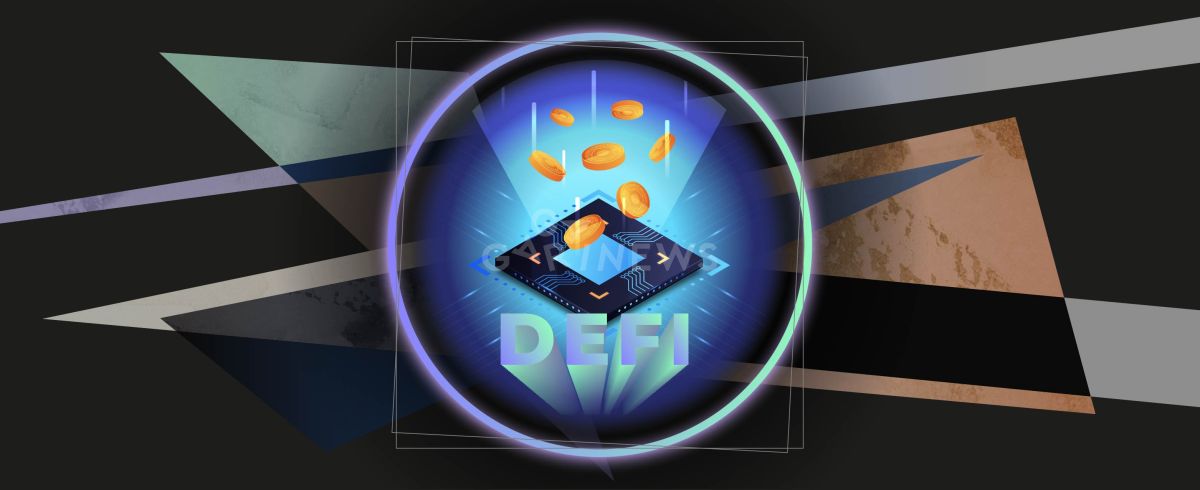DeFi pros and cons: considering risks and opportunities

DeFi is the innovative analog to the traditional banking sector. In this article, we look at the advantages and disadvantages of decentralized finance from an objective point of view so that you can make an informed decision about the potential of this new field.
Definition of DeFi
A tool that bypasses bureaucracy, reduces costs, and saves you time, has a high level of transparency and security. A tool that simplifies the lending and trading process and provides access to financial services without centralized supervision. This is how DeFi looks from a better perspective.
DeFi is a collective term for various blockchain-based products that offer alternative financial services. For example, DEX crypto-exchanges, stablecoins, lending platforms, and DAOs (autonomous peer-to-peer organizations). Decentralized finance differs from traditional finance by its public accessibility, open-source code, and use of smart contracts. According to DeFi Pulse, DeFi apps had an aggregate value of $11.5 billion in 2021.
DeFi's existence is made possible by blockchain, which enables the transformation of previously centralized services into decentralized ones. Online payments can now be anonymous, you don't have to prove your solvency to receive credit, and you can store assets in your remote wallet. Therefore, blockchain technology is believed to have revolutionized classical banking. Some even predict that DeFi will replace traditional finance.
The sphere has quite a lot of both supporters and opponents because of its controversial nature. The fact is that the sector is relatively new and has its negative aspects that have yet to be worked on. But DeFi’s features do attract people more than they repel them. Otherwise, the field would not be able to boast of such high statistical indicators.
We suggest you analyze the pros and cons of DeFi to decide which side you are on.
Which are the advantages of DeFi?
Decentralization
The first advantage of DeFi is that it eliminates the intermediary of a centralized control body. This feature is attractive to institutional investors, retail traders, and consumers as it offers more opportunities and fewer barriers to financial freedom. Decentralization gives high reliability and reduces the likelihood of fraud.
Transparency
DeFi is more transparent than traditional finance. A distributed ledger records all activities on the network, and thanks to open-source code, a person with sufficient technical knowledge can verify the necessary information.
Data are recorded on the blockchain only after they have been verified, and transparency improves the identification process. This makes it possible to prevent financial fraud.
Accessibility
Decentralized finance has a low entry threshold. Credits, transfers, asset purchases – all transactions can often be made without restrictions, confirmations, additional certificates, verifications, and KYC in a few clicks. Smart contracts automatically process transactions around the clock, 7 days a week. The user will never face their suspension due to weekends or holidays.
High Percentage Yield
While banks offer earning interest on deposits, DeFi’s platforms provide staking, yield farming, and liquidity pools to earn annual percentage yield. In the latter case, rates are higher, ranging from 3% to 30%, and the minimum accrual periods are 7 days.
Autonomy
Decentralized finance services give their customers more control over their funds. Transactions often do not require users’ data, which protects them from having their personal information used by the organization for targeted advertising.
Security
DeFi stores data on hundreds of different computer nodes to prevent hacking and attacks. Blockchain consensus mechanisms prevent a single participant from affecting the entire network. Security is guaranteed by the immutability of the information, another advantage of the sphere.
Data immutability
This is related to the operation of the blockchain overall. Code encryption, together with PoW and PoS consensus methods, allow a distributed network to achieve immutability in the true sense of the word. That is, whatever is recorded in the blockchain stays there forever; these data cannot be falsified. This feature reduces the risk of possible unfair actions and human errors.
What are the disadvantages of DeFi?
Difficult to use
Many DeFi products today are not oriented toward the average Internet user, and some require the customer to be technically savvy. It may be difficult to use the services because they do not involve learning elements, and their user interface can be confusing. However, future DeFi applications can take this into account.
Failures of smart contracts
Although blockchain is a highly secure technology, smart contracts can sometimes experience disruptions that cause problems for DeFi platforms.
Volatility
Since the sector is directly related to highly volatile cryptocurrencies, services occasionally suffer from price spikes. Operational mechanisms have been created to combat this problem, but they do not m,anage the difficulties well enough in many cases and miss some fluctuations. All this results in losses. You may recall MakerDAO, which showed with its example that decentralization combined with poor protocol setup could be DeFi’s weak point.
Instability
This is not common to all companies, but it is still a recurring trend if the blockchain on which a product runs is unstable. For example, Ethereum, on which most DeFi services are based, changes frequently, showing imperfections and room for improvement, which affects the applications connected to it. The opposite is also true – the instability of a particular service affects the entire network.
Low liquidity
Liquidity is the property by which assets can be bought or sold at a near-market price. High liquidity ensures the stability of quotes and allows fast transactions. DeFi can have lower liquidity compared to traditional finance due to an insufficient balance of funds. However, some services successfully manage this feature with liquidity pools.
Not all DeFi services are decentralized
It contradicts the DeFi concept, but it’s true. Flexa (FXC) is one of these products, despite its open-source code. This is also the case for stablecoins backed by fiat, gold, or other commodities, as they function due to a central authority that manages their flow.
As you can see, the advantages and disadvantages of DeFi are closely related to the pros and cons of blockchain. This means that as technology improves, we will see significant advances in decentralized finance. Many companies are already working on smart contracts, liquidity, volatility, and stability improvements. New high-speed blockchains and financial products based on them are emerging. They may no longer have some of the disadvantages listed above.
The content on The Coinomist is for informational purposes only and should not be interpreted as financial advice. While we strive to provide accurate and up-to-date information, we do not guarantee the accuracy, completeness, or reliability of any content. Neither we accept liability for any errors or omissions in the information provided or for any financial losses incurred as a result of relying on this information. Actions based on this content are at your own risk. Always do your own research and consult a professional. See our Terms, Privacy Policy, and Disclaimers for more details.

























